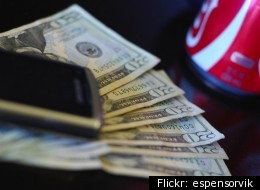 FCC Seeks To Crack Down On Cellphone Bill 'Cramming'
FCC Seeks To Crack Down On Cellphone Bill 'Cramming'
The Federal Communications Commission voted Tuesday to seek public comments on the proposed rules, which are intended to crack down on the practice of "cramming." Cramming is the illegal placement of unauthorized fees on a consumer's phone bill – either by the phone company or an outside party.
WASHINGTON -- Federal regulators are proposing new rules to make it easier for consumers to detect and challenge mystery fees on their phone bills.
These fraudulent charges are usually buried inside phone bills and generally appear under generic descriptions such as minute use fee, activation, member fee, voice mail or Web hosting. Often just a few dollars, they can be easy to overlook.
The FCC vote came a day before a Senate hearing on the issue.
The proposed FCC rules would require landline phone companies to place third-party charges in a separate section of phone bills and to notify consumers whether they offer the option of blocking such charges. The notification must be given when consumers sign up for service, and must appear online and on their bills.
The proposed rules also would require both landline and wireless carriers to notify consumers that they can file complaints about cramming with the FCC. Phone companies must provide the agency's contact information.
In addition, the FCC will consider whether to require landline phone companies to offer services that block third-party fees and whether to prohibit them from charging for such services. It also will consider whether to require landline phone companies to automatically block third-party fees from consumer bills altogether.
The agency will consider whether to extend cramming rules that apply to landline companies to wireless carriers and Internet calling services as well.
The commission estimates that as many as 15 million to 20 million American households have mystery fees on their monthly landline phone bills every year. Cramming is also an emerging problem for wireless customers, the agency said.
Tuesday's vote is part of a broader effort by the FCC to combat mystery fees.
Last year, the agency reached a record settlement with Verizon Wireless over $1.99-a-megabyte data access fees that appeared on the bills of customers who didn't have data plans but accidentally initiated data or Internet sessions by pressing a button on their phones. Verizon Wireless agreed to pay $25 million to the government and at least $52.8 million in customer refunds under the settlement.
No comments:
Post a Comment
Please let the comments be relevant to the posted Topic::